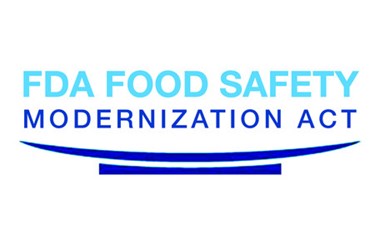FSMA: The FDA's New Approach To Inspections

By Sam Lewis

The all-inclusive method that has been the agency’s MO for years is being cast aside, making way for industry-specific, even product-specific, guidelines under FSMA. In addition to changing the overall approach to food safety, officials at the FDA say the agency is considering using a company’s food safety history as a determining factor to prioritize inspections and audits.
During a July 7 teleconference, Kathy Gombas, the food safety lead at the FDA’s Center for Food Safety and Applied Nutrition (CFSAN), along with Samir Assar, CFSAN’s director of produce safety, discussed the importance of making preparations for the upcoming changes FSMA will bring once implemented. While consumers won’t see the work food makers put into compliance — overhauls in recordkeeping practices, traceability systems, and workforce management solutions, to name a few — the changes will be very apparent to industry professionals. “We will specialize our inspections, compliance functions, and staff by creating commodity-based regulatory programs,” says Gombas. “[Previously] it was quite possible that you might have a medical device investigator in the facility and then the next day they might be doing food, but what we’re going to be doing now is focusing that specialization on food.”
Tips For Complying With New Food Safety Regulations
FSMA’s approach will even bring changes all the way down to the farm and grower level. During the call, Assar pointed out that a “specialized cadre” of officials will be shown to perform on-farm evaluations. Gombas went on to describe “subject matter experts” that will be made ready for real-time conferencing with on-site and in-the-field regulators so questions can be answered immediately from both inspectors and the inspected. “We’re going to invest in our regulatory training and the calibration of our investigators and inspectors to ensure the training is resulting in consistent inspections and decision making,” says Gombas.
So what’s the motivation behind the food safety paradigm shift? According to Assar, the government is more concerned with food producers providing consumers with safe food than seeking punishment and fines for violations. “To the extent possible, we would like to provide the opportunity on the spot for the farmer to take the corrective action and possibly avoid any type of formal documentation as to a violation but instead record that a corrective action was taken on the spot,” says Assar.
Preparing To Meet The Requirements Of The Food Safety Modernization Act
That’s not to say that punishment isn’t part of FSMA, but growers, producers, and processors who practice good safety measures will be incentivized. “Firms with good compliance history may be inspected less frequently. They may have shorter inspections and or inspections may have a different focus. Maybe it will be a component inspection,” says Gombas. “We will assess a firm’s food safety culture by using a different line of questioning. We will factor whether or not a firm has a culture of food safety into our risk-prioritization model for inspection purposes. We will apply a wider range of inspection sampling, testing and data collection activities.
In other words, say goodbye to the one-size-fits-all method to audits, inspections, and food and beverage industry safety management.
